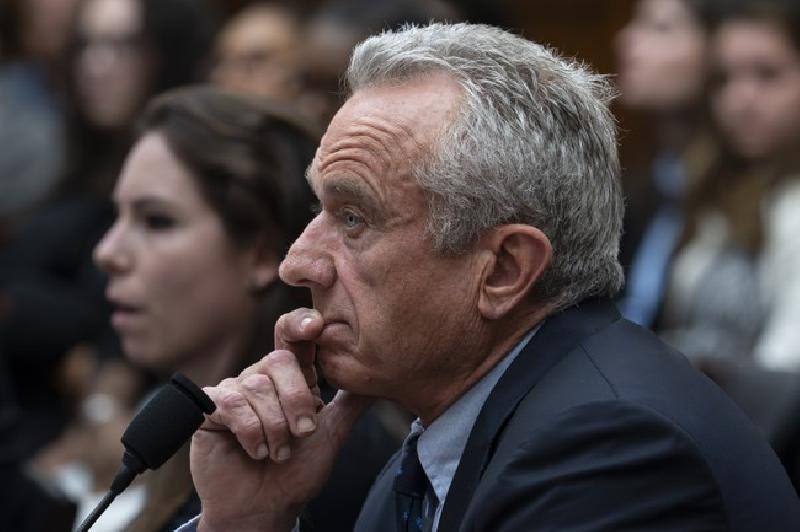Joe Biden and Donald Trump are the least popular candidates to top the ballot of the major parties in history. The opening this has given third-party candidates is historic and could determine the outcome of the election.
At the moment, third-party candidates would, collectively, swing the election to Trump. Trump is beating Biden by 2 points according to the II/TIPP poll released Wednesday. But by adding five independent candidates, Trump extends his lead to 4 points. Trump loses 3 points and Biden loses 5 points when the independent candidates are added to the mix.
In that II/TIPP poll, Robert F. Kennedy receives 8 percent, the potential No Labels candidate Sen. Joe Manchin (D–W. Va.) gets 3 percent, independent Cornel West gets 2 percent, and presumed Green nominee Jill Stein and the supposed Libertarian candidate Lars Mapstead tied at 1 percent apiece.
The West candidacy is especially interesting. He may either make a play for the Green Party top spot or form his own party. That would help him get on more than the two state ballots he’s presently on. He’s also a progressive black candidate, which is just the sort of candidate who would cost Biden a significant chunk of the black vote.
No Labels Party may or may not be a mirage. And if they keep their promise and do not run a presidential candidate who can’t win, then the Manchin number is moot. There’s just no path to victory for a centrist candidate.
But a lot of influential people have already invested a lot of money in the No Labels Party. They’re not likely to stand down at this point just because of a promise they made a year ago.
What’s really costing Biden is the Gaza War. The young and especially Muslim Americans are angry enough to stay home or vote for a third-party non-interventionist like RFK or West.
Reason.com:
A December New York Times/Siena poll showed that the 18–29 cohort thinks that Biden has been too supportive of Israel (45 percent vs. 6 percent who said too supportive of Palestinians); that the Palestinians were the most sympathetic side (46 percent to 27 percent for Israelis); that America should not send more support (55 percent); that Israel is not seriously interested in a peaceful solution (59 percent); and that Israel should stop the war even before all its hostages are free (67 percent). All of those numbers are way out of whack with the rest of American adults, and help explain why—in this one poll, anyway—the under-30 vote prefers Trump over Biden 49 percent to 30 percent.
“Forget No Labels. Biden’s Third-Party Peril is on the Left,” went the headline on a Politico magazine article this weekend written by the influential campaign journalist Jonathan Martin. “How many Biden speeches must be shouted down,” Martin wondered, “until Democrats realize that a hot war in Gaza this fall may mean 30,000 fewer votes apiece in Madison, Dearborn and Ann Arbor and therefore the presidency?”
Michigan is shaping up to be the whole ballgame for 2024. Wisconsin and Pennsylvania are both trending red and if Trump captures Michigan, it would be a repeat of 2016.
In five-way general election polls this cycle—Trump vs. Biden vs. Kennedy vs. Stein vs. West—Stein and West are polling at around 2.2 percent apiece. That may not sound like a lot, until you consider that a combined 4.4 percent for left-of-the-Democrat candidates would be the highest number since the Progressive Party’s Robert La Follette over a century ago. Also, in the five such polls taken in 2024 that also feature the simple Trump vs. Biden matchup, the bigger ballot saw Trump’s lead widen by an average of two percentage points.
It’s still far too early to be talking seriously about third-party impact on the election. If history is a guide, third-party strength tends to diminish greatly by the time the election rolls around.
But so much about 2024 is unprecedented, anything can, and probably will, happen.
via pjmedia

